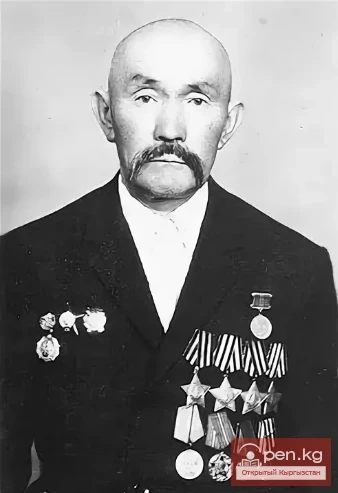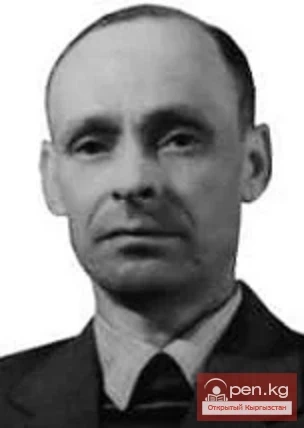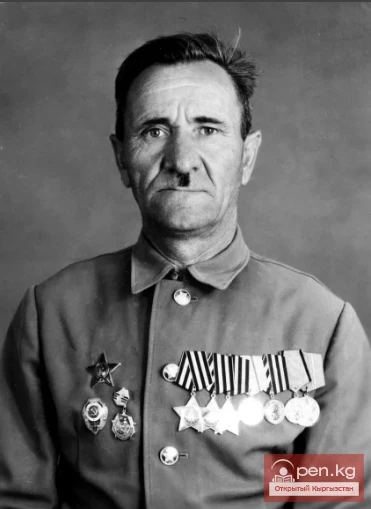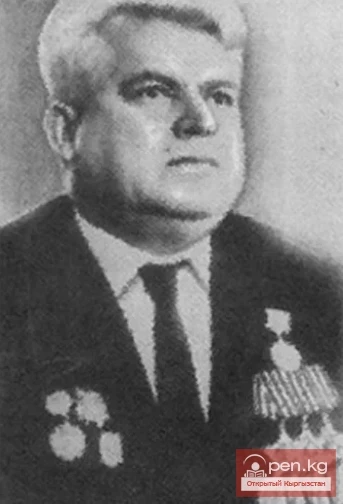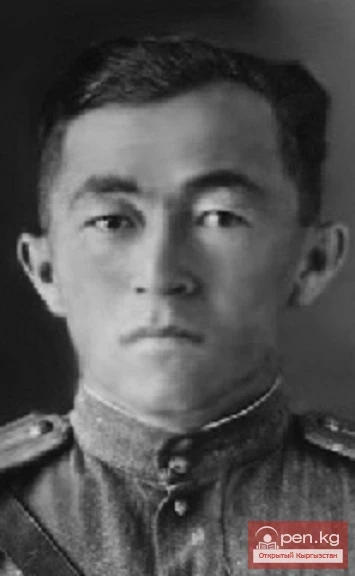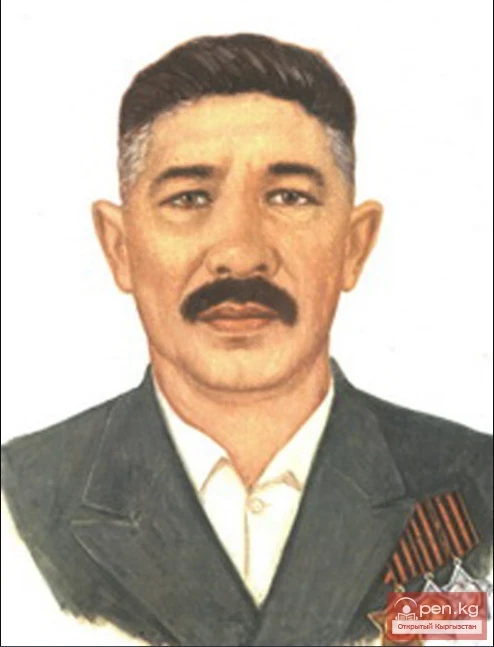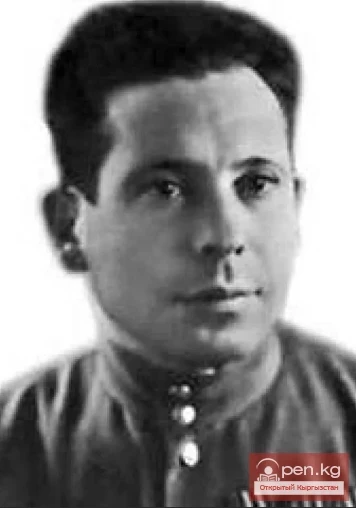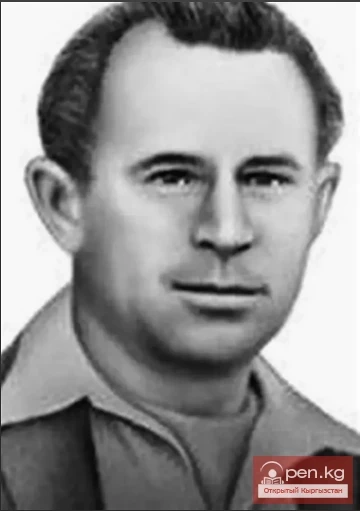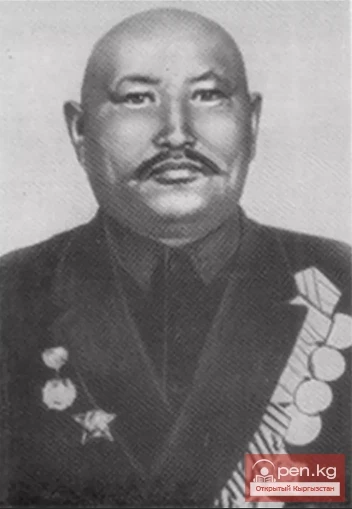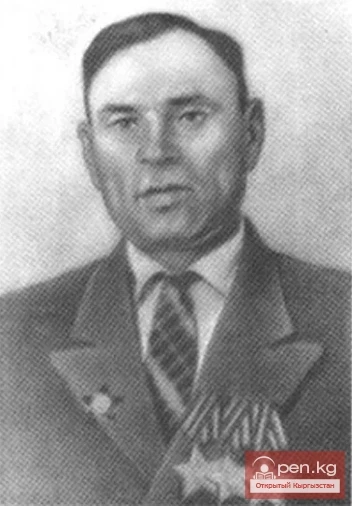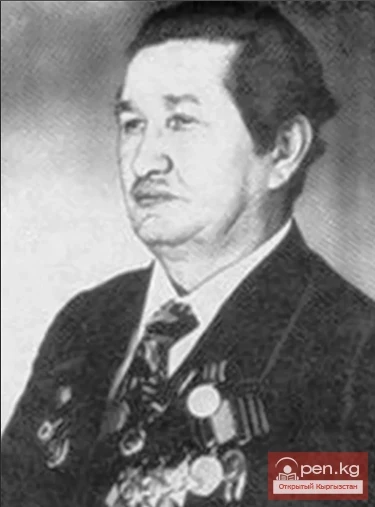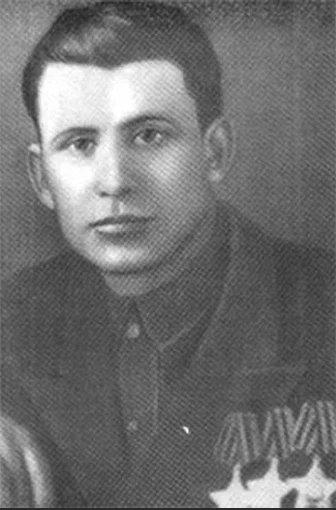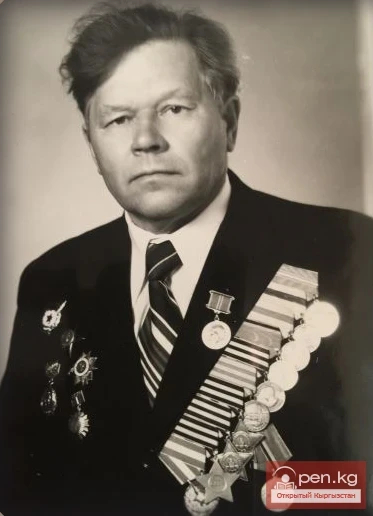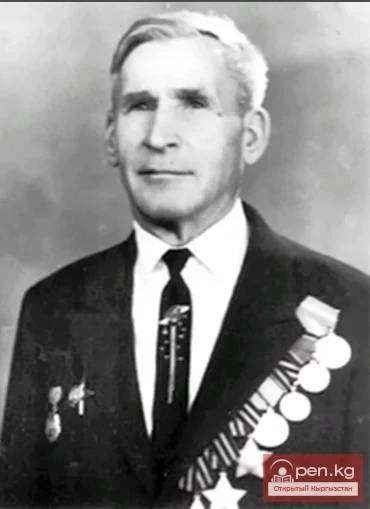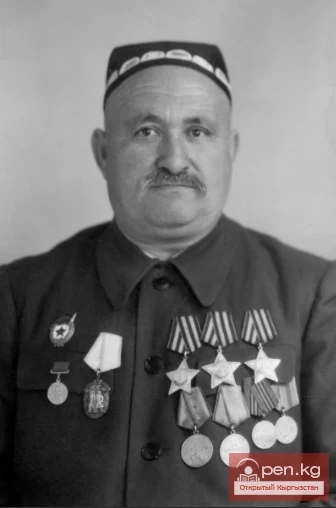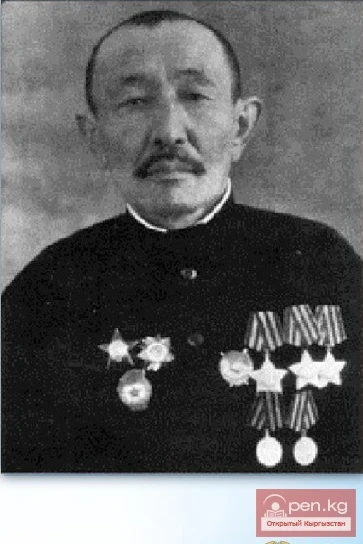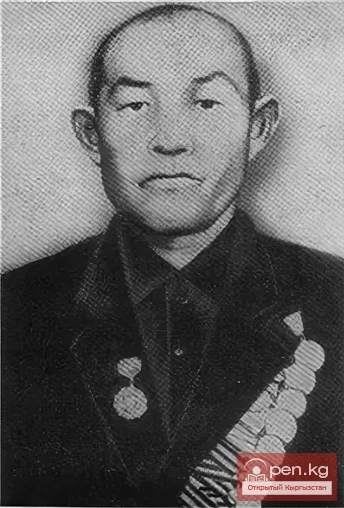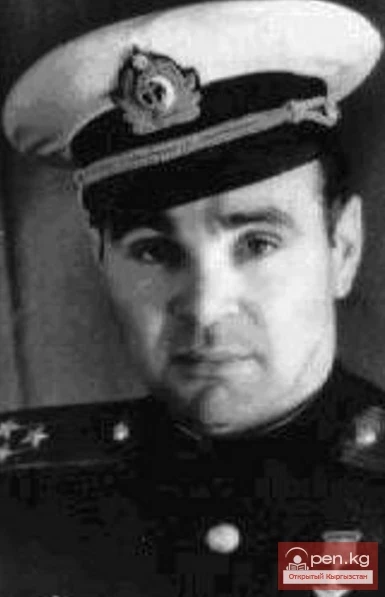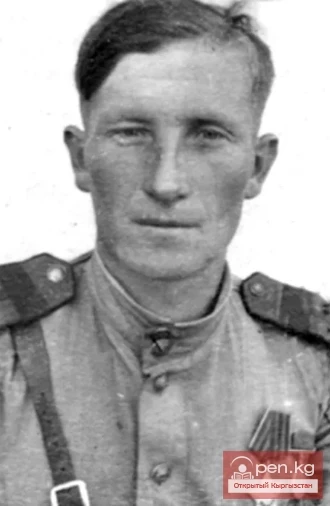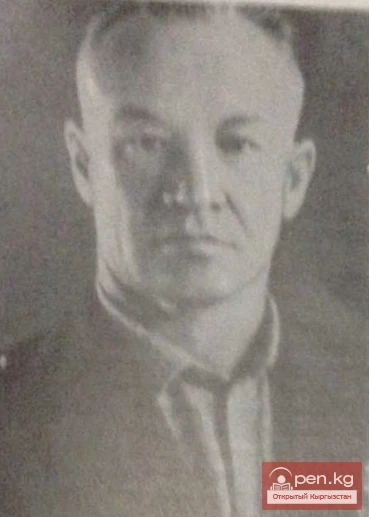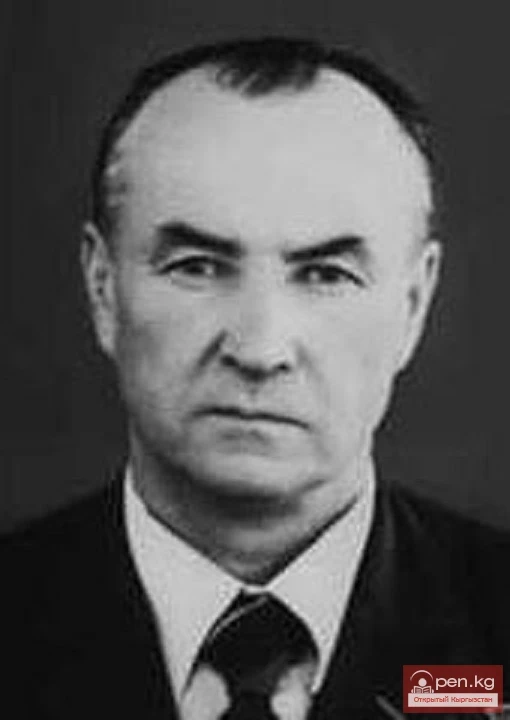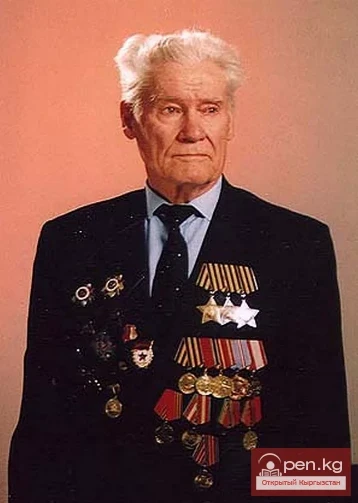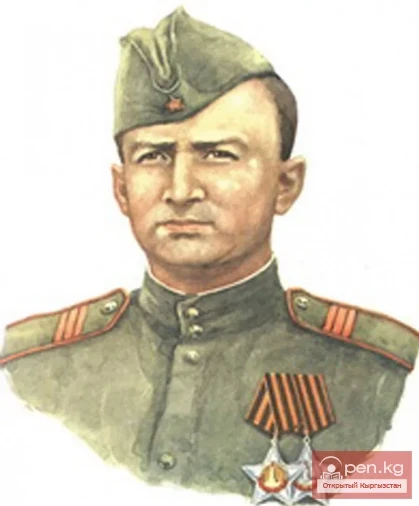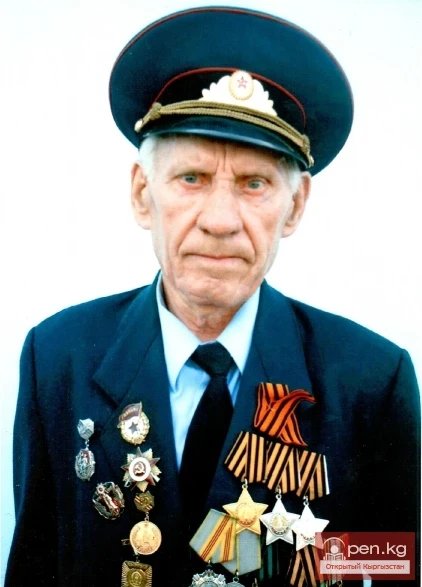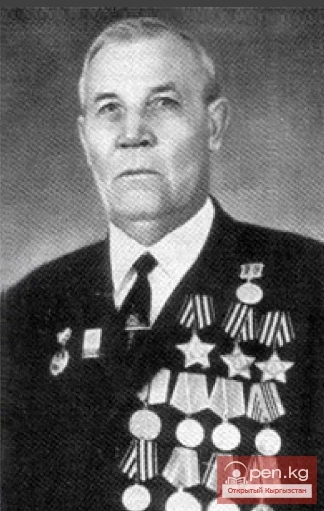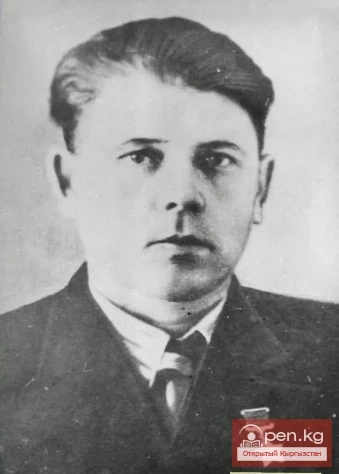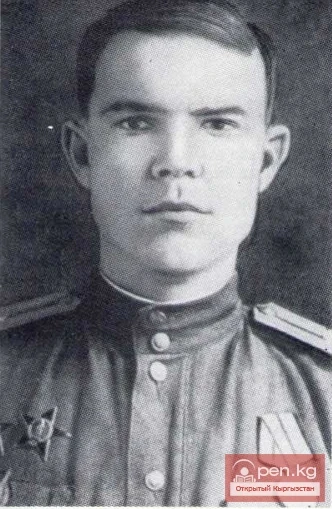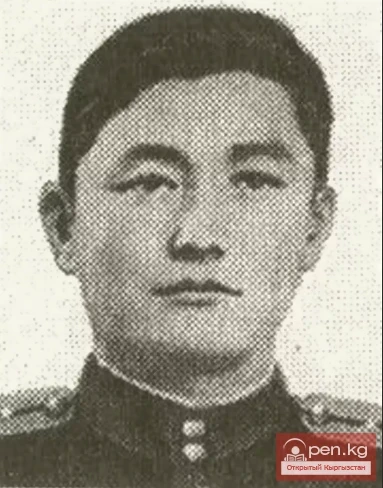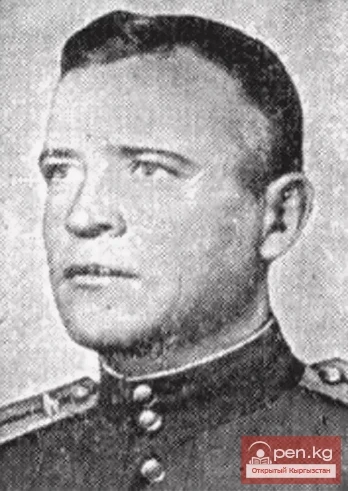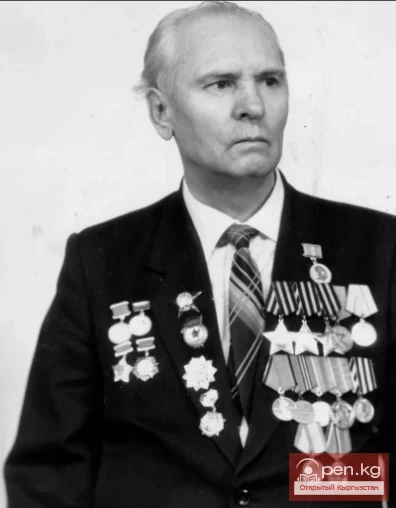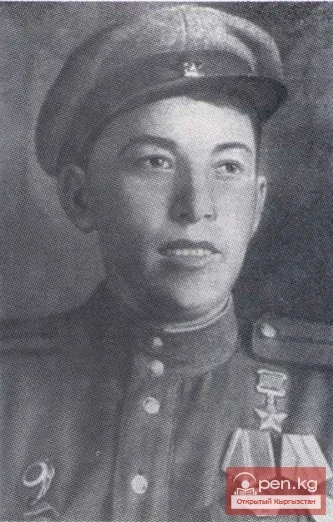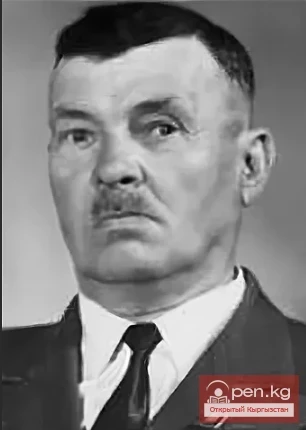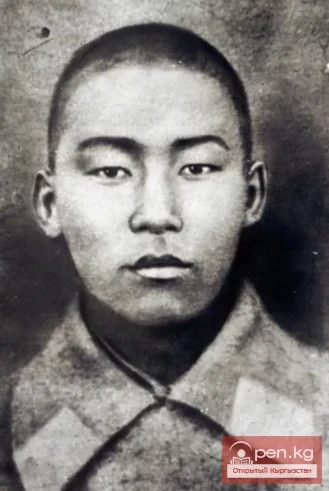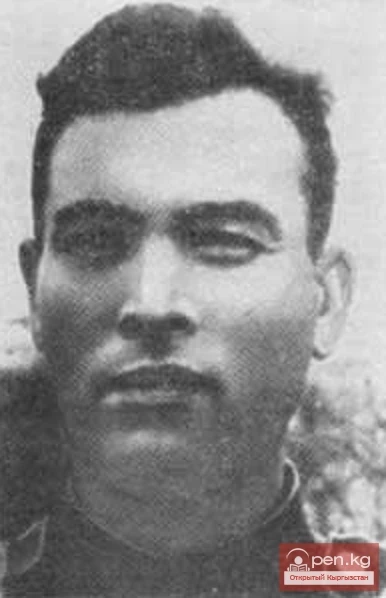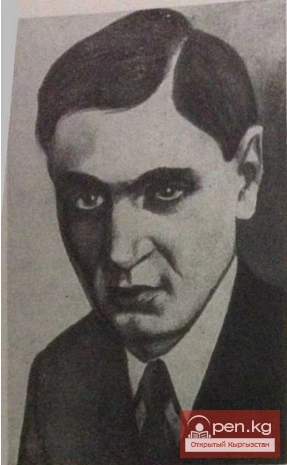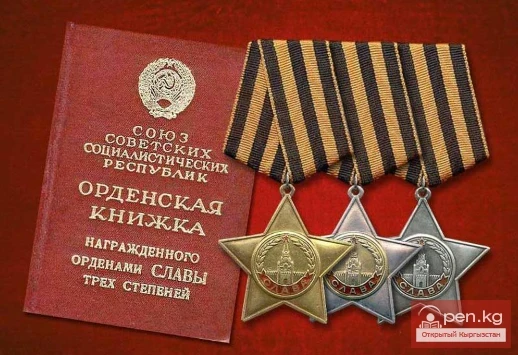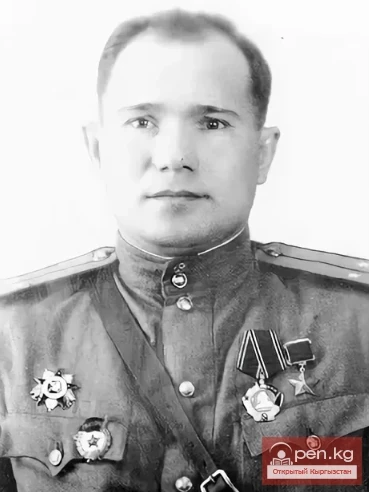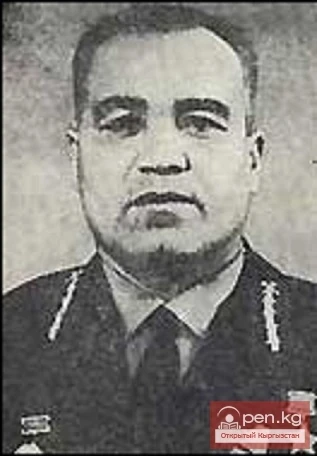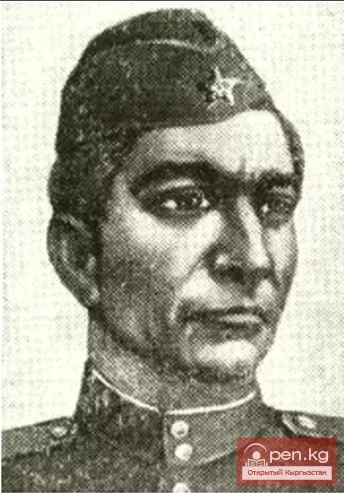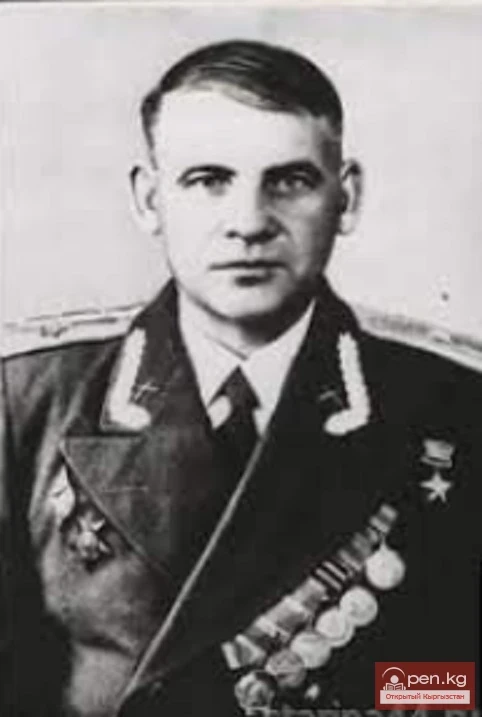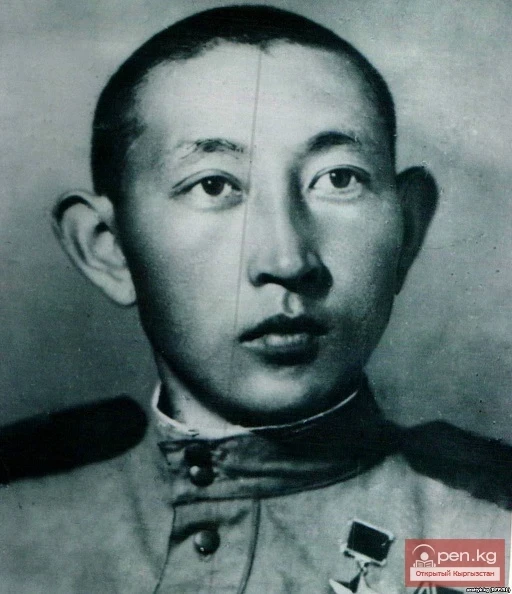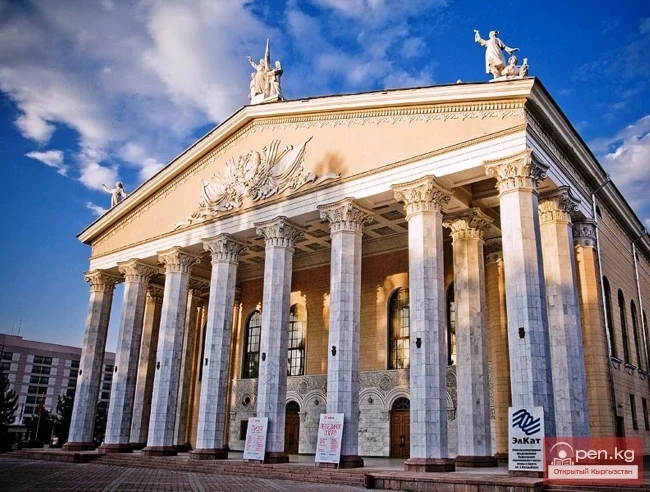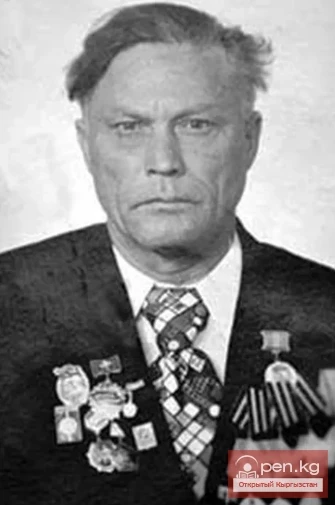
Plotnikov Dmitry Tarasovich
Commander of a squad of the rifle company of the 837th rifle regiment (238th rifle division, 49th army, 2nd Belarusian front), sergeant – at the time of the award for the Order of Glory 1st class.
Born on October 10, 1923, in the village of Kolpak, now Gaysky, until 1962 – Novoorsky, district of Orenburg region, in a peasant family. Russian. Education is incomplete secondary. Worked in a collective farm.
In the Red Army since November 1941, drafted by the Novoorsky military enlistment office. On the front during the Great Patriotic War since August 1942. Fought on the Kalinin, Bryansk, Belarusian, and 1st Belarusian fronts. Participated in battles in the area of the city of Bely (now Tver region), the defeat of the enemy's Oryol and Bryansk groupings, and the crossing of the rivers Desna, Ipuit, and Sozh. In November 1943, during the Gomel-Rechitsa operation, the 238th rifle division, in which private Plotnikov served as an automatic rifleman in the 837th rifle regiment, repeatedly attempted to cross the Dnieper River near the village of Novy Bykhov (Bykhov district of Mogilev region). In the spring of 1944, the division was redeployed to the area south of Mogilev and joined the 2nd Belarusian front.
On June 27, 1944, squad commander sergeant Plotnikov crossed the Dnieper at the railway bridge near Mogilev and the next day was one of the first to break into the eastern outskirts of the city. Pursuing the retreating enemy, he suppressed a machine-gun position, killing two Nazis in the process.
In the award sheet, presenting Plotnikov for the Order of Glory III class, the regiment commander wrote:
“Comrade Plotnikov, under heavy artillery and machine-gun fire from the enemy, crossed the Dnieper River with his squad near the railway bridge and, overcoming enemy resistance, was the first to break into the eastern outskirts of the city of Mogilev. This contributed to the liberation of the city.”
By order of the 238th rifle division dated August 9, 1944, sergeant Plotnikov Dmitry Tarasovich was awarded the Order of Glory 3rd class (No. 223565).
He subsequently participated in the offensive in the Pukhovich direction, in the Bialystok offensive operation, and in battles near Grodno.
On August 20, 1944, during a battle in the area of the settlement of Poryte (Bialystok region, now Poland), during an artillery bombardment, D.T. Plotnikov shielded his battalion commander with his body. While being wounded, he refused hospitalization and remained in the ranks.
On September 12, 1944, ahead was the city of Lomza (Poland). The company was advancing on the locality of Novogrudki. The enemy's defense line was fortified with pillboxes, trenches with machine-gun nests, and ambushes hid in the edges of numerous groves.
Plotnikov's squad was tasked with reconnoitering the oak grove that remained on the left and, if there were Germans there, to tie them down and not allow them to strike the company's flank.
The yellowed fields surrounded the grove on all sides. A cobblestone road, lined with linden trees in three rows, ran through them. The lindens had already turned golden with autumn, while the oaks still stood green and were so powerful and dense in their crowns that the grove looked like a mound.
The day began cloudy, and a cold, damp wind blew. The oaks rustled, and a thick shadow lay beneath them.
Plotnikov's squad approached the grove and was already preparing to make a dash when a machine gun opened fire from the bushes at the edge. The soldiers fell into the ditch and crawled further. Soon the Germans became visible. They were expecting an attack, preparing to meet it with machine-gun and automatic fire. The squad found itself in a position where it could only advance. If it turned back, the counterattack of the fascists would end with the complete destruction of the squad. But advancing also carried enormous risk: the enemy's forces greatly outnumbered them.
— Our task is to tie them down — we will tie them down — said Plotnikov.
— How? — asked Yermolov.
Plotnikov silently unbuckled his entrenching tool and began to dig a hole.
— I see, — Yermolov said and also began to dig in. The ditch was deep enough, well covered the soldiers, but it was inconvenient to fire from it.
— We’ll sit here until evening, at least, — Yermolov reasoned aloud, — so, brothers, dig to keep from getting bored.
The ground was soft, it was possible to set up a trench, as lying on their bellies was damp, and it seemed that it might rain...
The Germans guessed what the squad was doing and began to shoot at the places where they noticed the thrown-up earth.
— Hold on, brothers, — said Yermolov, — they’ll count us and who knows what...
— Throw the earth back into the ditch, — ordered Plotnikov.
— Dig like moles, — Yermolov explained and showed how to do it.
The shooting stopped. The fascists, apparently satisfied that they had prevented the digging in, continued to observe.
At that moment, a noise of battle was heard from the right, moving west, and soon chains of our infantry appeared in the field behind the road. They were bypassing the grove and heading for Novogrudki. The Germans in the bushes became agitated, opened fire, but they were far from the advancing troops, and the machine guns caused no harm. They realized this and rushed into a counterattack, intending to cut off the front chains of the company from the rest.
The squad met them with heavy fire. They hurried back and interfered with their own machine guns, which could not fire.
Plotnikov jumped up:
— Forward! — he shouted! The soldiers rushed after him.
Firing on the move, they burst into the bushes and occupied the trench. Plotnikov was at the edge of the grove, threw grenades at the pillbox, and captured it, killing seven Germans. There were three machine guns there. He carried one out, and Yermolov, who arrived, brought a belt, and they struck along the edge where the fascists were stopping to return to the trench. Not expecting this blow, the Germans fell back into the depths of the grove, and everything fell silent, only an indistinct roar of battle could still be heard from the direction of Novogrudki.
A few days later, the regiment commander wrote: “Deserves the Order of Glory II class.”
By order of the 49th army dated October 29, 1944, sergeant Plotnikov was awarded the Order of Glory 2nd class (No. 8588).
In 1945, Plotnikov participated in the East Prussian and East Pomeranian operations.
On March 16, 1945, during the repulsion of an enemy attack, he personally killed nine Germans.
On March 27, during the offensive on the city of Danzig (now Gdańsk, Poland), our rifle units were blocked by the fire of a German machine-gun position. Plotnikov, with his squad, using the folds of the terrain, moved to the flank of the Germans and destroyed the position, killing eight enemy soldiers in the process.
Entry in the award sheet: “On March 27, 1945, he was tasked with destroying the enemy firing point that was hindering the advance of our infantry.
Sergeant Plotnikov, as the squad commander, using the folds of the terrain, began to advance his squad forward. But the enemy, having detected them, opened heavy fire. Plotnikov's squad continued to advance to the flank of the enemy. At this time, the company began to advance. The enemy shifted fire to it. And then sergeant Plotnikov suddenly rushed forward and threw grenades at the firing point. Completing the combat mission, he ensured the advance of the infantry.”
A month later, the war ended...
Plotnikov's regiment passed north of Berlin to the Elbe and there, meeting with the American army units, transitioned to a new, unfamiliar position – standing still, resting, and preparing to return home. There, Plotnikov learned that he had become a full cavalier of the Order of Glory.
By decree of the Presidium of the Supreme Soviet of the USSR dated June 29, 1945, for courage, bravery, and heroism displayed in the struggle against the German-fascist invaders, sergeant Plotnikov Dmitry Tarasovich was awarded the Order of Glory 1st class (No. 886).
D.T. Plotnikov finished the war on the Elbe. In 1945, he was demobilized.
He returned to his homeland.
In 1948, he moved to Kyrgyzstan, to the city of Kara-Balta (now the administrative center of the Jayil district of Chuy region of Kyrgyzstan). He worked as an excavator operator at the West Chuy Construction and Installation Management.
He passed away on February 7, 1998. He was buried in the cemetery of the city of Kara-Balta.
He was awarded the Orders of the Patriotic War 1st class, Glory 1st, 2nd, and 3rd class, and medals.
In the city of Kara-Balta, a memorial plaque has been installed on the house where the veteran lived.
Kyrgyzstanis – Full Cavaliers of the Order of Glory
